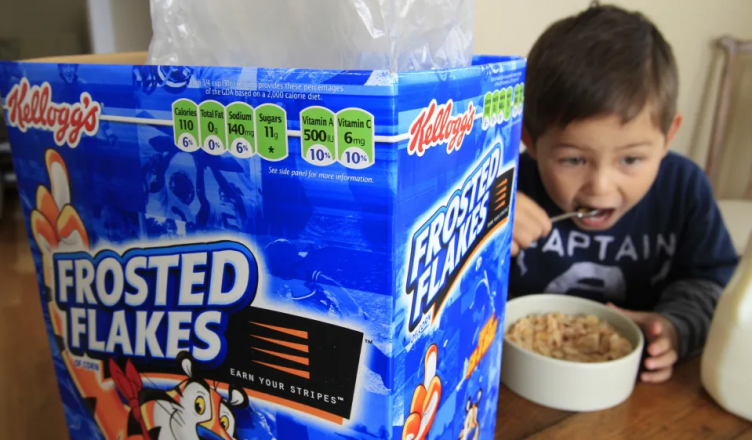Kellogg spun off its snacks business to create two independent companies: WK Kellogg (KLG:NYSE), home to brands like Froot Loops and Rice Krispies, and Kellanova (K:NYSE), which houses its brands like Cheez-It and Pop-Tarts.
Kellanova began trading on Monday using “K,” the combined companies’ old symbol, while WK Kellogg uses the ticker “KLG.”
Kellogg announced the decision last year to break off its faster-growing snacks business from its cereal brands, which have lost market share and supermarket shelf space. The food company originally planned to spin off its plant-based food business as well.
WK Kellogg shares dropped 22.1% for the week, while Kellanova shares declined by 9.7%.
General Motors and Ford lay off more workers
General Motors (GM:NYSE) and Ford Motors (F:NYSE) laid off an additional 500 workers combined as the United Auto Workers’ strike continues.
About 25,000 UAW workers are on strike at facilities owned by Detroit’s top automakers. This has resulted in automakers idling more than 6,000 workers, including suppliers across GM, Ford and Chrysler parent Stellantis
Meanwhile, the shutdowns have yet to weigh on car sales, which continued to rise in the third quarter. GM on Tuesday reported a 21% increase in U.S. sales.
GM and Ford shares fell 6.2% and 3.3% respectively for the week, while Stellantis shares rose 1.73%
Uber now offers post office returns
Uber (UBER:NASDAQ) has began offering pickups of return packages. Uber said returns will cost $5 or less, and customers can track their packages from doorstep to post office ( using the Uber and Uber Eats apps.
Uber and competitors like DoorDash (DASH:NASDAQ) have been entering the growing package-return market since online shopping exploded during the pandemic. DoorDash began doing package-return pickups in January, and Walmart has rolled out at-home return pickup for its Walmart+ members.
Uber shares fell 0.46% for the week
Falling egg prices crack Cal-Maine’s quarterly sales
Cal-Maine’s (CALM:NASDAQ) quarterly sales dropped 30% from a year earlier, and the egg producer said its average selling price for a dozen eggs fell to $1.59 from $2.28 a year ago.
The industry is recovering from 2022’s avian-flu outbreak—the deadliest in U.S. history—that helped push prices above $4 a dozen in January.
Eggs have been one of the most dramatic examples of U.S. food inflation. Prices soared more than 30% last year, outpacing all other grocery items, according to market research firm Circana Group.
Cal-Maine shares tumbled 5% for the week.
Clorox suffers cyberattack
Clorox (CLX:NYSE) is struggling to clean up after a recent cyberattack. The cleaning-products giant warned late Wednesday that it would post a deep loss for the quarter ended Sept. 30 instead of the roughly $150 million in earnings that investors expected.
The company’s quarterly sales will drop at least 23% after the hack brought its operations to a near halt, causing order delays and product outages.
Clorox is among the first U.S. corporate giants to suffer a cyberattack since the Securities and Exchange Commission’s rigorous new cyber incident-reporting rules took effect in September.
Clorox shares dropped 4.62% for the week.
Exxon Mobil close to acquiring Pioneer Natural Resources
Exxon Mobil (XOM:NYSE) is closing in on a takeover of Pioneer Natural Resources (PXD:NYSE) that could be worth roughly $60 billion, The Wall Street Journal reported Friday. An acquisition of Pioneer would likely be Exxon’s largest deal since its $75 billion megamerger with Mobil in 1999.
The news was a bright spot for energy investors, as falling oil prices weighed on the sector earlier in the week.
Pioneer shares jumped 3.4%, while Exxon shares lost 8.8% for the week.

